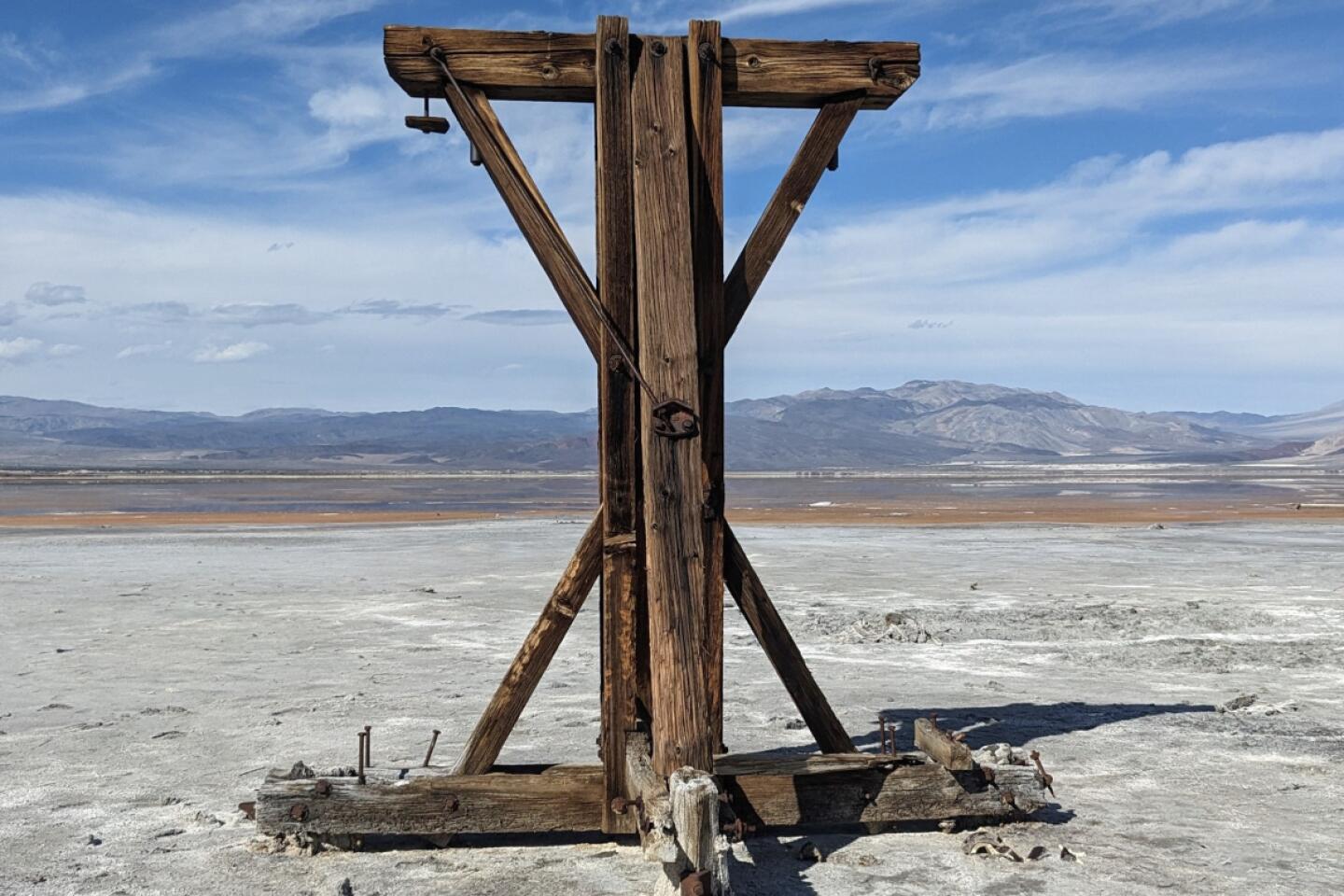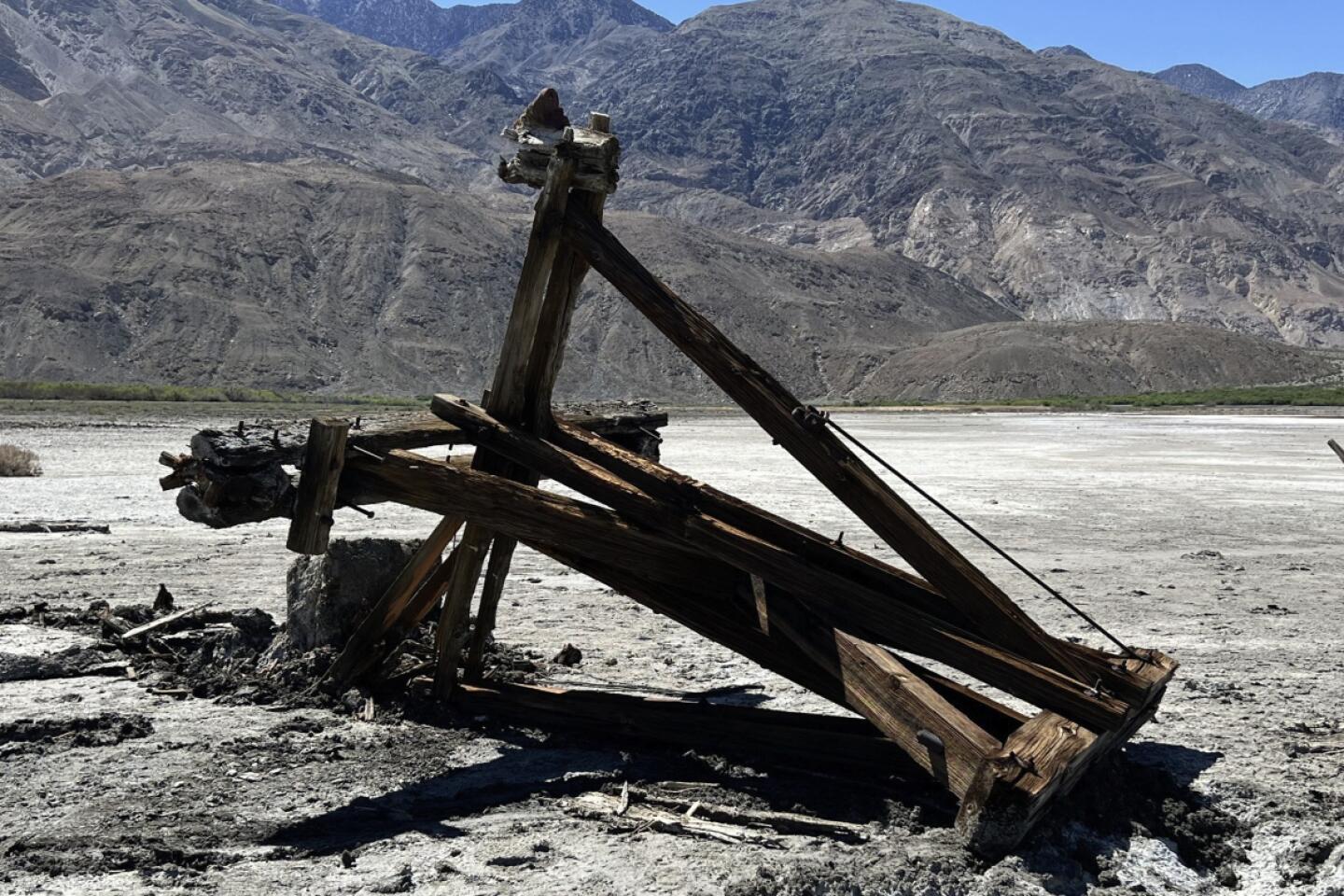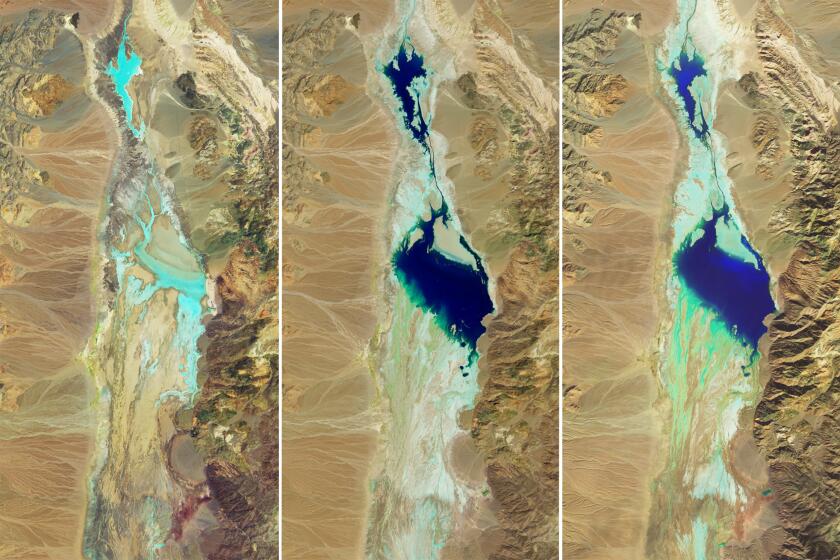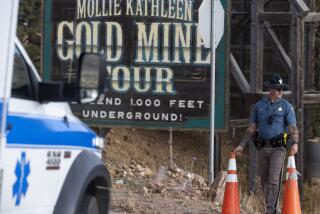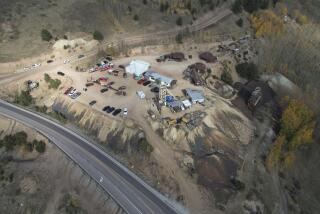Historic Death Valley tram tower ripped down when tourists pull vehicle from mud, officials say
- Share via
After a historic aerial tram tower was knocked over in Death Valley National Park, rangers are now searching for the people responsible for the damage.
National Park Service officials said visitors may have attached a line to the tower to pull a vehicle out of the mud after driving off-road. They think the incident occurred sometime last month, between April 1 and April 24, when they found the tower lying on its side.
A video taken from the dashcam of a vehicle posted on YouTube shows the people who may have pulled the tower over.
The 11-minute video, Outside Magazine reported, was uploaded on April 27 then taken down Wednesday, two days after the park service sought information about the incident. An edited version of the video was also posted on the magazine’s website.
The edited video, which is about two minutes long, starts with a man pulling up next to a woman wearing a pink bikini top, jean shorts and a trucker hat. The woman tells the driver that she needs a winch.
“We went a little too far into the mud, and there’s nothing to press the winch onto,” she’s heard saying.
The video then shows a white truck with a camper deep in mud, and at the edge of the screen is the tram tower, which appears to already be lying on its side. The video also shows the woman next to a man in a flannel shirt and jean shorts after an attempt to pull the vehicle out failed. Eventually, a second line is needed to pull the truck out, but the video ends before it can show the results of that attempt.
It’s unclear whether the couple or any of the people seen in the video caused the tower to topple, but the magazine included a photo of the man in the flannel shirt removing a winch from the downed tower.
A temporary lake in Death Valley National Park doubled after recent rains and is now deep enough to launch a kayak. Prior to August, the lake hadn’t appeared in 19 years.
The wooden tower was part of the Saline Valley Salt Tram, a 13-mile aerial tramway built in 1911 and used to transport salt from the Saline Valley, over the Inyo Mountains and to a processing station near Owens Lake.
Park officials said the tram — which is listed on the National Register of Historic Places — climbed more than 7,000 feet up steep slopes when it was in use.
“I have hiked along sections of this tramway, and am amazed by the tenacity it took to build,” National Park Service Supt. Mike Reynolds said in a statement. “I hope the person responsible for this damage will contact us so we can discuss restitution.”
The tower is not the only Death Valley icon that has been damaged recently. A fire last month destroyed a historic wooden wagon at a privately owned resort in the park.
The fire, one of two that day, occurred just after midnight April 4 behind the Borax Museum and destroyed a wooden wagon used to transport borax out of Death Valley in the late 1800s.
The two-wagon set was one of five constructed and used between 1883 and 1898, when 18 mules and two horses were used to pull two large wagons that transported sodium borate 165 miles from Death Valley to a Mojave station.
Only three sets of wagons remain intact, including one on display in the U.S. Borax Co. headquarters in Boron, Calif., according to park officials.
The wagon destroyed in the April fire had about 50% integrity, officials said, with original running boards and some metal hardware. It sat next to a steam engine dubbed “Old Dinah” that eventually replaced the mule teams. The historic engine also was damaged in the blaze.
A second fire, which broke out about five hours after the first one, destroyed two fabricated housing units for resort employees that were not occupied at the time. A third unit was damaged in the fire.
No one was harmed in either blaze, the causes of which are under investigation by the Inyo County Sheriff’s Office and the State Fire Marshal.
Spokespeople for both departments could not immediately be reached for comment.
More to Read
Sign up for Essential California
The most important California stories and recommendations in your inbox every morning.
You may occasionally receive promotional content from the Los Angeles Times.
